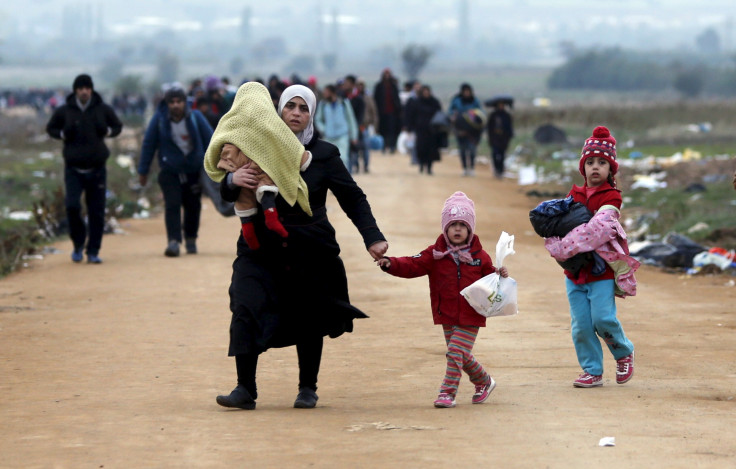Europe Refugee Crisis: Bulgaria Worried EU-Turkey Deal Will Shift Smuggling Route

As European Union leaders meet once again in Brussels Thursday in an attempt to find a unified solution to the refugee crisis, Bulgaria is worried a EU deal with Turkey to send back refugees could make it the next key transit country for thousands of them arriving in Europe.
Bulgarian Prime Minister Boyko Borissov has indicated he wants his nation included in the plan that would send refugees arriving in Greece back to Turkey, the Brussels-based media platform EurActiv reported, citing Bulgarian press reports. Bulgaria's gross domestic product only grew by 0.3 percent from 1.3 percent in 2013 to 1.6 percent in 2014, raising concerns about refugees competing with locals for jobs.
“Bulgaria would not be ready to accept a partial Turkish engagement [only for the Greek islands], which will most probably lead to opening up of new migration routes,” Borissov wrote in a letter to European Council President Donald Tusk before the summit, Politico Europe reported.
The EU’s proposed agreement with Turkey is meant to discourage traffickers from ferrying refugees into Greece. Turkey would take back refugees who arrive on the Greek islands in exchange for the EU legally taking in more refugees from Turkey.
For how long @hrw shld wait to get official access to refugee facilities in #Greece? Many requests, but no answer. pic.twitter.com/E1y42jqb46
— Eva Cossé (@Eva_Cosse) March 17, 2016
Bordering both Greece and Turkey, Bulgaria is concerned that if the deal is finalized in its current form, traffickers will look for alternative routes, likely moving across the Turkish border into Bulgaria. Albania, an EU candidate country, has also expressed fears it could become another transit route nation with refugees moving north through it into Montenegro.
Bulgaria built a fence along its border with Turkey, but about 1,500 refugees continue to enter the country monthly, the German broadcaster Deutsche Welle reported. While the Bulgarian government has agreed to the refugee quota resettlement program, an Arabic-language guide for refugees has ranked the country as the top nation to avoid in Europe, citing strong anti-Islamic and anti-refugee views among its citizens.
Violent conflicts in Syria, Iraq and Afghanistan have driven the refugee crisis, with millions attempting to reach Western European states to claim asylum. More than 1 million refugees have arrived in Greece by land and sea routes since January 2015, the Geneva-based International Organization for Migration reported.
With a population of 7 million, Bulgaria became a member of the EU in 2007 and saw early waves of refugees passing through its territory in 2013.
© Copyright IBTimes 2024. All rights reserved.





















